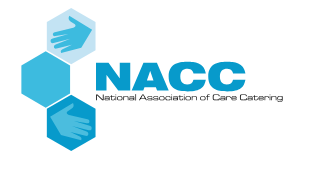Caterers and hotelkeepers have been warned to ensure they start preparing in good time for new pensions duties to avoid the risk of financial penalties.
New pensions laws mean that all employers must automatically enrol certain staff into a workplace pension scheme and make contributions towards it.
Every small and micro business has a staging date which is a date set in law and is when their legal duties are switched on.
At the start of this year, The Pensions Regulator began sending letters to every employer across the country to alert them to their new duties.
And this month (June), thousands of small and micro employers will see their automatic enrolment duties switched on and many of these will be in the catering and hospitality sector.
Research shows the majority of employers think that automatic enrolment is ‘a good thing’ for their workers and the majority of employers have complied on time. However, the regulator has said that as the numbers reaching their staging dates grows and as the employer type changes, we expect to see an increase in the use of our compliance and enforcement powers. These powers range from issuing a compliance notice, which is like a warning letter, to issuing fixed and escalating fines.
Complying with automatic enrolment means carrying out a number of statutory tasks and the regulator recommends starting these around 12 months ahead of the staging date. We have recently launched a new 11 step guide to automatic enrolment which is tailored for small and micro employers who may have limited pension’s experience.
The online guide should be the first port of call for all employers.
www.thepensionsregulator.gov.uk/employers.aspx
One key automatic enrolment task is checking which staff are eligible for automatic enrolment. Eligible staff are those over 22, who ordinarily work in the UK and who earn more than £10,000 per year.
As the catering and hospitality sector has a more complex work force with lots of seasonal and temporary staff, assessing workers can be a challenge and employers should ensure they leave plenty of time to do this. The regulator anticipates that most employers will have automated systems to carry out automatic enrolment processes including assessing workers. Employers should ensure the staff data they gather is accurate and entered correctly into payroll and pension scheme systems. Employers should also show their working – demonstrating the rational they used when deciding who is and isn’t eligible for automatic enrolment.
More information on assessing staff can be found at:
www thepensionsregulator.gov.uk/employers/assess-and-enrol-your-staff.aspx
One option for businesses with seasonal staff is postponement. This is an additional flexibility for all employers which enables them to delay assessing staff for up to three months. One of the main reasons an employer might postpone is if they have temporary or short-term staff who they know will stop working within three months – for example after the tourist season. Employers wishing to use postponement should visit the regulator’s website to ensure they do this correctly including informing staff they are using postponement.
Under the new laws, employers must also communicate changes to staff and tell them how automatic enrolment effects them as individuals. Again this can be a challenge for industries relying on seasonal and temporary staff. Workers who are not eligible must be informed of this and of their right to opt in or join a pension scheme.
More information on communicating with workers can be found at: www.thepensionsregulator.gov.uk/employers/write-to-your-staff.aspx


